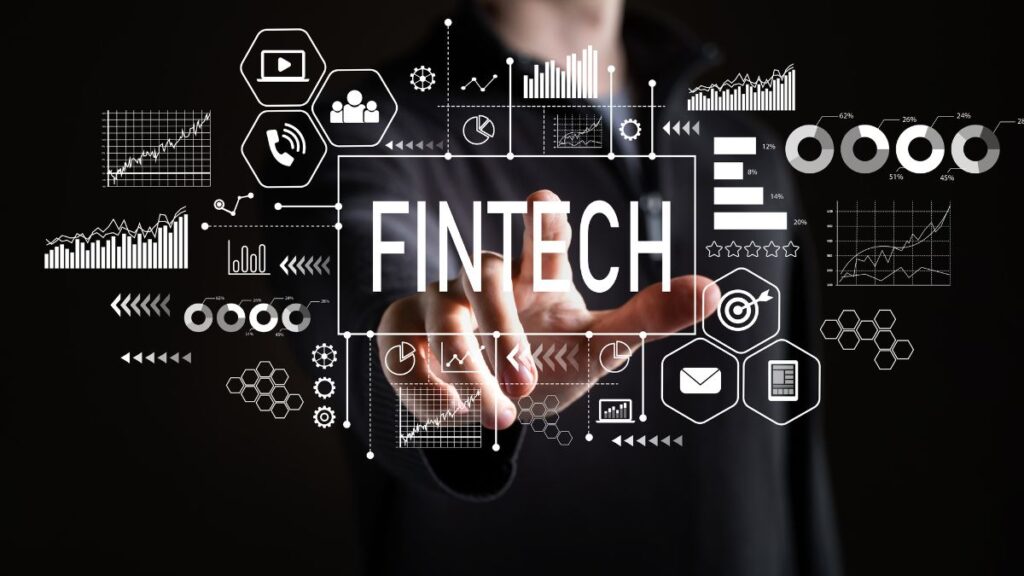In the rapidly evolving world of finance, a technological revolution is transforming how we interact with money, investments, and financial services. Fintech, a powerful blend of financial technology, is reshaping traditional banking and creating unprecedented opportunities for consumers and businesses alike.
The Digital Financial Ecosystem
Modern financial technology goes far beyond simple digital transactions. It represents a comprehensive reimagining of financial infrastructure, leveraging cutting-edge technologies like artificial intelligence, blockchain, and machine learning to deliver smarter, faster, and more accessible financial solutions.
Key Innovations Driving Fintech
Financial technology is revolutionizing multiple domains:
- Mobile Payment Systems
- Automated Investment Platforms
- Cryptocurrency and Blockchain Technologies
- Personal Finance Management Tools
- Digital Banking Solutions
Transformative Impact on Traditional Banking
Traditional financial institutions are experiencing significant disruption. Fintech startups are challenging established banks by offering more flexible, user-friendly, and cost-effective services. These innovative platforms provide seamless digital experiences that prioritize customer convenience and technological efficiency.
Democratizing Financial Access
One of the most profound contributions of fintech is its ability to democratize financial services. Individuals who were previously excluded from traditional banking systems can now access sophisticated financial tools through smartphone applications. This technological leap is particularly transformative in developing economies, where mobile technology can bridge significant financial infrastructure gaps.
Artificial Intelligence and Personalized Financial Services
Machine learning algorithms are enabling unprecedented levels of personalization in financial services. Advanced AI systems can now:
- Analyze spending patterns
- Provide customized investment recommendations
- Detect potential fraud in real-time
- Automate complex financial decision-making processes
Enhanced Security Measures
With digital financial transactions becoming increasingly prevalent, fintech companies are implementing robust security protocols. Biometric authentication, advanced encryption techniques, and multi-factor verification systems help protect users’ financial data and transactions.
Investment and Wealth Management Revolution
Robo-advisors and automated investment platforms are democratizing wealth management. These digital solutions offer:
- Low-cost investment options
- Automated portfolio rebalancing
- Personalized investment strategies
- Accessibility for small-scale investors
Blockchain: Beyond Cryptocurrency
While cryptocurrencies like Bitcoin initially brought blockchain into the mainstream, the technology’s potential extends far beyond digital currencies. Smart contracts, decentralized finance (DeFi), and transparent transaction records are revolutionizing how financial agreements are structured and executed.
Global Economic Implications
Fintech is not just changing individual financial experiences but reshaping entire economic landscapes. By reducing transaction costs, increasing financial inclusion, and enabling cross-border transactions, these technologies are creating more interconnected and efficient global financial systems.
Regulatory Challenges and Opportunities
As fintech continues to evolve, regulatory frameworks are adapting to accommodate these technological innovations. Governments and financial regulators are working to balance innovation with consumer protection, creating environments that foster technological advancement while maintaining financial system stability.
The future of finance is digital, personalized, and increasingly accessible. Fintech represents more than a technological trend—it’s a fundamental reimagining of how we conceive, manage, and interact with money in an increasingly connected world.
Digital Payment Ecosystems and Their Global Impact
In the rapidly evolving landscape of financial technology, digital payment ecosystems have emerged as a transformative force reshaping how money moves across the globe. These sophisticated networks are breaking down traditional barriers, connecting individuals, businesses, and economies in ways never before imagined.
The Rise of Interconnected Payment Platforms
Modern digital payment ecosystems leverage cutting-edge technologies to create seamless, instantaneous financial transactions. From mobile wallets to blockchain-powered platforms, these systems are revolutionizing the way people interact with money. Emerging markets are experiencing particularly dramatic transformations, with digital payments leapfrogging traditional banking infrastructure.
Key Technological Drivers
- Advanced encryption technologies
- Real-time processing capabilities
- Artificial intelligence-powered fraud detection
- Cloud-based financial infrastructure
Global Economic Implications
The impact of digital payment ecosystems extends far beyond convenience. These platforms are driving financial inclusion, empowering millions of previously unbanked individuals to participate in the global economy. Developing countries are witnessing remarkable economic democratization, with mobile payment solutions providing access to financial services in remote regions.
Financial Inclusion Metrics
| Region | Digital Payment Adoption Rate | Economic Impact |
|---|---|---|
| Sub-Saharan Africa | 67% | Increased GDP Growth |
| Southeast Asia | 55% | Enhanced Small Business Access |
| Latin America | 48% | Financial Service Expansion |
Security and Innovation Convergence
Digital payment ecosystems are not just about moving money; they represent a sophisticated fusion of security and innovation. Advanced machine learning algorithms continuously monitor transactions, detecting and preventing fraudulent activities in milliseconds. Biometric authentication, including facial recognition and fingerprint scanning, adds multiple layers of protection.
Cross-Border Transaction Evolution
International money transfers have been dramatically transformed by these ecosystems. What once took days and incurred substantial fees can now be completed almost instantaneously with minimal transaction costs. Cryptocurrencies and blockchain technologies are further accelerating this trend, creating decentralized financial networks that transcend traditional banking limitations.
Consumer Behavior Transformation
The psychological relationship with money is changing. Digital payment platforms are creating more transparent, user-friendly financial experiences. Consumers now expect real-time tracking, instant notifications, and personalized financial insights. This shift is driving continuous innovation in the financial technology sector.
Future Technological Integration
- Internet of Things (IoT) payment capabilities
- Voice-activated financial transactions
- Predictive spending analytics
- Integrated financial management tools
Sustainable Financial Ecosystems
Beyond economic efficiency, digital payment platforms are contributing to environmental sustainability. By reducing paper-based transactions and enabling more efficient resource allocation, these ecosystems are supporting broader global sustainability goals. The reduction in physical infrastructure and paper waste represents a significant environmental benefit.
As digital payment ecosystems continue to evolve, they promise to reshape global financial interactions. The convergence of technology, security, and accessibility is creating a more inclusive, efficient, and dynamic financial landscape that transcends traditional boundaries.

Artificial Intelligence in Modern Banking Strategies
In the rapidly evolving landscape of financial services, cutting-edge technologies are revolutionizing how banks interact with customers and manage operations. Artificial intelligence has emerged as a transformative force, reshaping traditional banking strategies with unprecedented precision and efficiency.
Intelligent Customer Experience Revolution
Modern banks are leveraging AI-powered chatbots and virtual assistants to provide personalized customer service 24/7. These intelligent systems can handle complex queries, process transactions, and offer tailored financial advice without human intervention. By analyzing customer data and behavioral patterns, AI enables banks to create hyper-personalized experiences that anticipate individual financial needs.
Risk Management and Fraud Detection
Machine learning algorithms have become critical in identifying potential financial risks and detecting fraudulent activities. Advanced AI systems can analyze millions of transactions in real-time, recognizing suspicious patterns that human analysts might miss. These sophisticated technologies significantly reduce financial fraud, protecting both banks and their customers from potential monetary losses.
Key AI-Driven Risk Management Strategies
- Real-time transaction monitoring
- Predictive credit risk assessment
- Automated compliance checking
- Advanced anomaly detection
Enhanced Decision-Making Capabilities
Banks are increasingly relying on AI-driven predictive analytics to make informed strategic decisions. Machine learning models can process vast amounts of financial data, providing insights into market trends, customer behavior, and potential investment opportunities. These intelligent systems help financial institutions optimize their product offerings, pricing strategies, and risk management approaches.
Algorithmic Trading and Investment
Artificial intelligence has dramatically transformed investment strategies through sophisticated algorithmic trading platforms. These systems can execute trades at lightning-fast speeds, analyzing market conditions and making split-second decisions that maximize potential returns while minimizing risks.
AI Trading Advantages
- Emotion-free decision making
- Instant market analysis
- Continuous learning and adaptation
- Reduced human error
Personalized Banking Solutions
AI technologies enable banks to develop highly customized financial products tailored to individual customer profiles. By analyzing spending habits, income patterns, and financial goals, artificial intelligence creates targeted recommendations for savings, investments, and credit products that precisely match customer needs.
Operational Efficiency and Cost Reduction
Implementing AI technologies allows banks to streamline internal processes, significantly reducing operational costs. Automated systems can handle routine tasks such as document processing, customer verification, and compliance checks with remarkable accuracy and speed. This technological integration translates into substantial cost savings and improved overall organizational productivity.
Future of AI in Banking
As artificial intelligence continues to evolve, its role in banking will become increasingly sophisticated. Emerging technologies like quantum computing and advanced neural networks promise even more powerful analytical capabilities, potentially revolutionizing how financial institutions operate and interact with customers.
The integration of AI represents more than just a technological upgrade—it’s a fundamental reimagining of banking strategies. Financial institutions that successfully leverage these intelligent systems will gain significant competitive advantages, offering more responsive, secure, and personalized services in an increasingly digital world.
Blockchain Technology: Disrupting Traditional Financial Systems
In the rapidly evolving landscape of financial technology, blockchain is revolutionizing how we understand and interact with financial systems. This groundbreaking technology is dismantling traditional barriers and creating unprecedented opportunities for secure, transparent, and decentralized transactions.
Financial institutions are experiencing a seismic shift as blockchain introduces radical mechanisms for conducting transactions without intermediaries. The core strength of blockchain lies in its ability to create immutable, distributed ledgers that eliminate the need for centralized control. By enabling peer-to-peer transactions with enhanced security and reduced operational costs, this technology is fundamentally reimagining financial infrastructure.
The Mechanics of Disruption
Blockchain’s transformative power emerges from its unique architectural design. Unlike traditional financial systems that rely on centralized databases, blockchain distributes transaction records across multiple network participants. This decentralized approach ensures:
- Enhanced transparency
- Reduced fraud potential
- Lower transaction fees
- Faster cross-border transactions
- Increased trust among participants
Revolutionizing Financial Services
Banks and financial institutions are rapidly adopting blockchain to streamline complex processes. Smart contracts, self-executing agreements with predefined conditions, are eliminating manual interventions and reducing administrative overhead. These programmable contracts automatically trigger actions when specific criteria are met, creating unprecedented efficiency in lending, insurance, and asset management.
Global Transaction Transformation
International money transfers have traditionally been expensive and time-consuming. Blockchain technology is changing this paradigm by enabling near-instantaneous cross-border transactions with minimal fees. Cryptocurrency platforms demonstrate how global transfers can occur without intermediary banks, reducing transaction costs and processing times dramatically.
Security and Trust Mechanisms
Cryptographic algorithms embedded within blockchain create robust security frameworks. Each transaction is encrypted and linked to previous transactions, forming an unalterable chain of records. This approach makes fraudulent activities exponentially more challenging, providing unprecedented levels of financial security.
Economic Implications
The potential economic impact of blockchain extends far beyond traditional banking. Developing economies can leverage this technology to provide financial services to unbanked populations, creating inclusive economic ecosystems. Microfinancing, remittance services, and decentralized lending platforms are emerging as powerful tools for economic empowerment.
Emerging Investment Landscapes
Blockchain is spawning entirely new investment categories. Tokenization allows fractional ownership of assets like real estate, artwork, and commodities, democratizing investment opportunities. Investors can now participate in markets previously inaccessible due to high entry barriers.
Challenges and Adaptation
Despite its immense potential, blockchain faces regulatory uncertainties and scalability challenges. Governments worldwide are developing frameworks to integrate this technology while maintaining financial system stability. Technical limitations like energy consumption and transaction speed are continuously being addressed through innovative solutions.
Future Outlook
As technological capabilities expand, blockchain is poised to become a cornerstone of future financial systems. Machine learning, artificial intelligence, and advanced cryptographic techniques will further enhance its capabilities, creating more sophisticated and efficient financial networks.
The journey of blockchain represents more than technological innovation—it symbolizes a fundamental reimagining of financial interactions. By prioritizing transparency, security, and decentralization, this technology is not just disrupting existing systems but constructing entirely new paradigms of economic engagement.
Cybersecurity Challenges in the Fintech Era
In the rapidly evolving digital financial landscape, technology and security are locked in a constant battle. The rise of fintech has revolutionized how we interact with money, but it has simultaneously exposed critical vulnerabilities that cybercriminals are eager to exploit.
Financial technology platforms are increasingly becoming prime targets for sophisticated cyber attacks. These digital ecosystems handle sensitive personal and financial data, making them extremely attractive to malicious actors seeking financial gain or systemic disruption.
Digital Threat Landscape
Modern fintech platforms face unprecedented cybersecurity challenges that extend far beyond traditional banking security frameworks. Emerging technologies like blockchain, artificial intelligence, and cloud computing have introduced complex layers of potential security risks.
Key Vulnerability Areas
- Mobile banking applications
- Third-party payment systems
- Digital wallet platforms
- Cryptocurrency exchanges
- Personal financial management tools
Advanced Persistent Threats
Cybercriminals are developing increasingly sophisticated techniques to penetrate financial technology infrastructures. Machine learning algorithms enable attackers to create more intelligent and adaptive malware designed to bypass traditional security mechanisms.
Common Attack Strategies
- Phishing schemes targeting user credentials
- Ransomware targeting financial institutions
- Data breaches exploiting system vulnerabilities
- Social engineering manipulation
Technological Defense Mechanisms
Financial technology companies are investing heavily in cutting-edge cybersecurity strategies. Multi-factor authentication, advanced encryption protocols, and real-time threat detection systems have become fundamental components of robust digital defense infrastructures.
Emerging Security Technologies
- Artificial intelligence-powered threat detection
- Biometric authentication systems
- Blockchain-based security frameworks
- Zero-trust network architectures
Regulatory Compliance Challenges
Navigating complex regulatory landscapes presents another significant challenge for fintech organizations. Compliance with data protection regulations like GDPR and emerging cybersecurity standards requires continuous adaptation and significant financial investment.
Compliance Focus Areas
- Data privacy protection
- Transparent user consent mechanisms
- Regular security audits
- Incident response protocols
Human Factor Vulnerabilities
Despite technological advancements, human error remains a critical weakness in cybersecurity defenses. Employees and users represent potential entry points for cyber attacks through unintentional actions or limited cybersecurity awareness.
Risk Mitigation Strategies
- Comprehensive cybersecurity training programs
- Regular security awareness workshops
- Simulated phishing exercises
- Strong password management policies
Future Security Outlook
The ongoing cybersecurity arms race demands continuous innovation. Financial technology companies must adopt proactive, adaptive security strategies that anticipate potential threats rather than merely reacting to them.
As digital financial ecosystems become increasingly interconnected, robust cybersecurity is no longer optional—it’s an absolute necessity. Organizations that prioritize comprehensive security frameworks will ultimately build stronger trust with users and maintain their competitive edge in the rapidly evolving fintech landscape.
Conclusion
The financial world stands at a transformative crossroads, where fintech is not just changing how we interact with money, but fundamentally reimagining the entire financial ecosystem. As digital payment platforms, AI-driven banking solutions, and blockchain technologies continue to evolve, we’re witnessing a profound shift from traditional financial models to more accessible, efficient, and personalized financial experiences.
The convergence of cutting-edge technologies has democratized financial services, breaking down historical barriers that once restricted access to banking and investment opportunities. Artificial intelligence and machine learning are enabling more intelligent financial decision-making, while blockchain technology promises unprecedented transparency and security in transactions.
However, this technological revolution is not without its challenges. Cybersecurity remains a critical concern, requiring continuous innovation and robust protective strategies to safeguard sensitive financial data. Financial institutions and fintech companies must remain vigilant, investing in advanced security protocols to maintain user trust and protect against emerging digital threats.
The future of money is undeniably digital, decentralized, and driven by intelligent technologies. Consumers can expect increasingly personalized financial services, real-time transaction capabilities, and more inclusive financial ecosystems that transcend geographical and economic boundaries. As fintech continues to mature, it will play a pivotal role in creating more equitable, efficient, and user-centric financial systems globally.
Embracing these technological advancements is no longer optional but essential for businesses, financial institutions, and individuals seeking to remain competitive and relevant in an increasingly digital world. The fintech revolution is here, and it promises to reshape our financial landscape in ways we are only beginning to understand.
Read Also FinTech Disruption: How It’s Transforming Your Wallet & Financial Future!
Was this helpful?




Leave Feedback